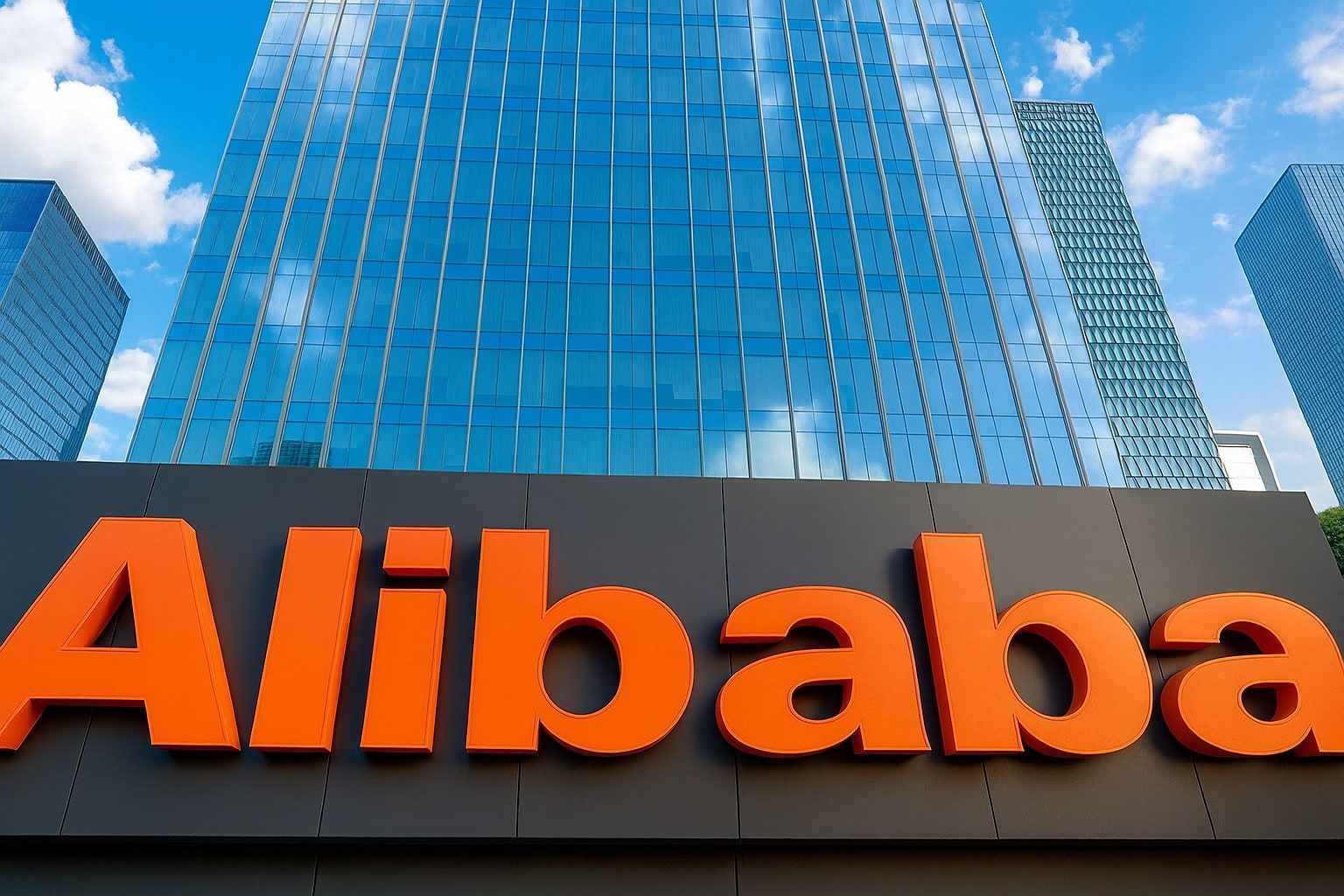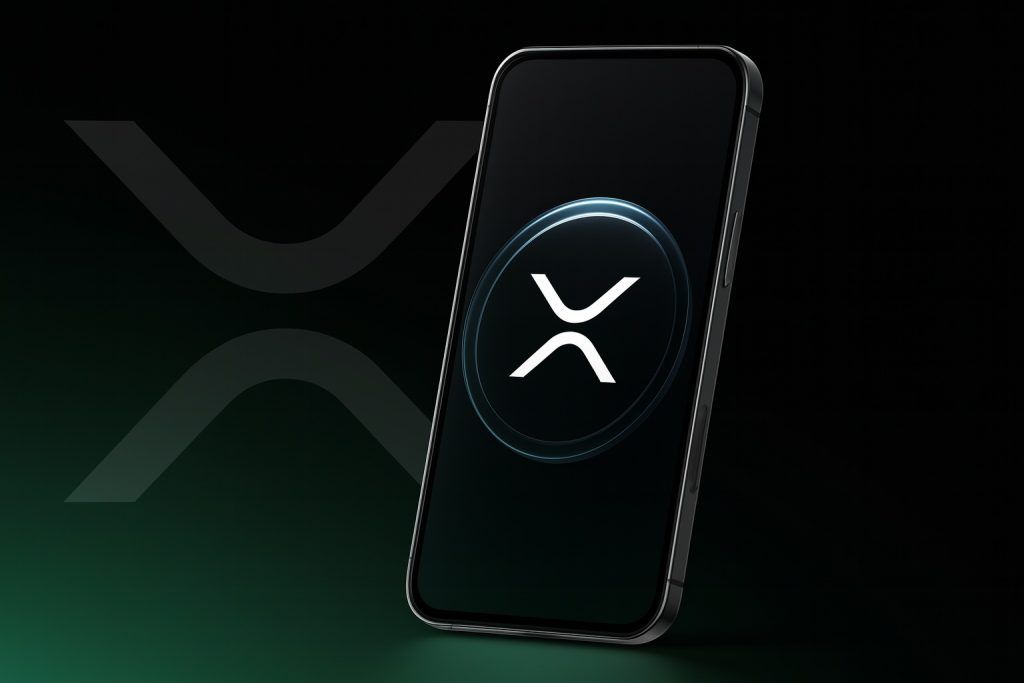For Alibaba Group Holding Limited (NYSE: BABA; HKEX: 9988), November 13, 2025 is all about artificial intelligence, Singles’ Day read‑throughs, and fresh institutional positioning as investors look ahead to the next earnings release later this month.
- Alibaba is preparing a major overhaul of its flagship AI chatbot app, renaming it “Qwen” and making it more ChatGPT‑like, with deeper integration into Taobao and other shopping platforms. Bloomberg+2GuruFocus+2
- Singles’ Day (Double 11) 2025 shows a “mixed” but growing consumer picture, with muted sentiment but higher overall GMV across platforms and strong demand for AI‑related gadgets on Alibaba’s marketplaces. Reuters+1
- Earnings are now officially scheduled for November 25, 2025, when Alibaba will report unaudited results for the quarter ended September 30 and host a conference call before the U.S. market open. Alibaba Group+1
- Big institutional investors are reshuffling positions in BABA, with ProShare Advisors and Midwest Trust increasing stakes while SBI Securities trims its holding. MarketBeat+2MarketBeat+2
- At around $158 per ADR today, Alibaba stock trades well below both its 52‑week high and many fair‑value estimates, even as technical indicators flash short‑term caution. Investing.com+2tickeron.com+2
Alibaba stock price today: trading around $158 with room, but also volatility
As of November 13, 2025, Alibaba’s New York–listed American Depositary Shares (BABA) are trading around $157.91, roughly where they closed on November 12. The ADRs have moved within a one‑day range of $156.20–$161.19 and a 52‑week range of $80.06–$192.67. Investing.com+1
At this level:
- Market cap is estimated around $375–395 billion depending on the source and FX assumptions. MarketBeat+1
- The trailing P/E ratio sits near 18, with a price‑to‑earnings‑growth (PEG) ratio of about 2.4, putting Alibaba in “quality growth at a reasonable price” territory rather than deep value. MarketBeat+1
- According to Investing.com data, the average 12‑month analyst price target is about $197, implying roughly 25% upside from today’s price. The same dataset shows 38 Buy recommendations versus 1 Sell, resulting in an overall “Strong Buy” consensus. Investing.com
Technical services like Tickeron flag that BABA has recently fallen below its 50‑day moving average and that the 10‑day moving average crossed below the 50‑day on November 12, often read as a short‑term bearish signal. tickeron.com However, oscillators also suggest the stock has moved into oversold territory, which sometimes precedes a bounce.
Separately, a discounted cash‑flow analysis at Simply Wall St pegs Alibaba’s intrinsic value around $262 per share, about 37% above the current price, and labels the stock “undervalued.” Simply Wall St As always, such models depend heavily on assumptions about long‑term growth and margins.
Qwen: Alibaba’s flagship AI app is getting a ChatGPT‑style reboot
The biggest Alibaba‑specific headline today is its plan to overhaul its main mobile AI chatbot app and rebrand it as “Qwen,” after the company’s in‑house large language model. Wikipedia+3Bloomberg+3GuruFocus+3
According to multiple reports:
- Alibaba will update its existing “Tongyi” apps on iOS and Android, renaming them “Qwen” and redesigning the interface and experience to more closely resemble OpenAI’s ChatGPT. Bloomberg+1
- The company plans to add agentic‑AI shopping capabilities, turning Qwen into a smarter assistant that can search products, compare deals and help users complete purchases on Taobao and other Alibaba marketplaces. Bloomberg+2GuruFocus+2
- Over 100 developers are reportedly working on the initiative as part of a broader push to monetize consumer‑facing AI and expand Qwen’s footprint globally. GuruFocus+1
This comes on top of Alibaba’s rapid model‑side progress in 2025. The company has rolled out Qwen3 and Qwen3‑Max, a new generation of large language models with up to 1 trillion parameters and strong performance in code generation and autonomous “agent” workflows. Wikipedia+1
Alibaba has also committed to investing hundreds of billions of yuan into AI infrastructure over several years, explicitly positioning AI — alongside e‑commerce — as a core strategic pillar, not just an add‑on product line. Reuters
Why this matters for the stock
- A more polished, consumer‑friendly Qwen app could become a key engagement layer for Alibaba’s entire ecosystem, driving traffic and conversion across Taobao, Tmall, AliExpress and more.
- If Qwen’s agentic shopping features gain traction, Alibaba could unlock new advertising formats, commission streams, and subscription‑style services powered by AI.
- Importantly, this puts Alibaba more squarely into the ring with other Chinese AI heavyweights such as Baidu, ByteDance and Huawei, and global rivals like OpenAI, Anthropic and Meta.
Investors will be looking for user growth metrics, retention and monetization data for Qwen in upcoming quarters, even if the initial rollout primarily focuses on product quality and ecosystem integration.
Singles’ Day 2025: muted mood, but AI‑centric growth pockets for Alibaba
Alibaba’s other major storyline this week revolves around the 2025 Singles’ Day (Double 11) shopping festival, which wrapped up on November 11 after more than a month of promotions.
A ‘mixed’ but expanding festival
A Reuters report describes the overall festival as “muted,” citing consumer malaise, a prolonged property slump and worries about income security as headwinds weighing on sentiment. At the same time, third‑party data provider Syntun estimates that combined sales across major platforms reached 1.70 trillion yuan, up from 1.44 trillion yuan last year, helped by the longer promotional window. Reuters
Major platforms — including Alibaba and JD.com — have again avoided publishing headline gross merchandise value (GMV) figures, a trend that began several years ago. Instead, they highlight category‑level growth and product success stories. Reuters
Alibaba’s read‑through: AI hardware and global reach
A Daily Buzz column from City News Service, published today, pulls together several signals around 2025 Singles’ Day performance: City News Service
- Alibaba’s Tmall reported a 25‑fold jump in sales of smart glasses, a product likely to be tied into the broader Qwen and augmented‑reality story over time.
- Robotics firm Ubtech saw double‑digit growth in robot sales via Alibaba’s platforms, underscoring consumer appetite for AI‑powered devices.
- Taobao extended Singles’ Day‑linked sales to more than 20 countries, reflecting Alibaba’s renewed focus on international expansion through platforms like AliExpress and Lazada.
Meanwhile, JD.com claimed record turnover (without giving a figure) and highlighted strong demand for AI‑enhanced cameras and smart home appliances, suggesting that AI is becoming a central selling point in consumer electronics. Reuters+1
A separate piece from Proactive Investors (blocked in full but summarized in search results) suggests that incremental daily user gains on Alibaba’s platforms helped lift Double‑11 performance above some expectations, even if overall sentiment across China’s consumer sector remains cautious. Proactive Investors
Implications
- Singles’ Day confirms that Chinese consumers remain selective, but they are still willing to spend on AI‑adjacent hardware and experiences.
- Alibaba’s ability to drive usage outside China and into Europe and other regions via AliExpress and Taobao Global is increasingly important, especially given domestic headwinds.
- Investors will likely look for revenue growth in international commerce and high‑value categories (electronics, AI devices, premium brands) when Alibaba reports at month‑end.
Earnings countdown: November 25, 2025
Alibaba has now officially set November 25, 2025 as the date it will report unaudited financial results for the quarter ended September 30, 2025 (Alibaba’s fiscal Q2). The company will release numbers before U.S. markets open, followed by a 7:30 a.m. U.S. Eastern Time (8:30 p.m. Hong Kong) conference call. Stock Titan+1
Key focuses for that report are expected to include:
- Core e‑commerce growth on Taobao and Tmall, particularly in higher‑margin categories and paid marketing services.
- Cloud & AI, including demand for Qwen‑powered services, AI infrastructure spending and the profitability trajectory of Alibaba Cloud.
- International retail performance at AliExpress, Lazada, Trendyol and Daraz.
- Margin trends, as higher AI and logistics investments compete with cost discipline.
Investors will also watch for commentary on:
- The pace of Qwen AI product rollouts and early user metrics.
- Any further details on share repurchases and capital returns.
- Management’s read on Chinese consumer confidence post‑Singles’ Day.
Big‑money flows: ProShare and Midwest buy more Alibaba as SBI trims
Today’s batch of 13F‑related headlines highlights fresh institutional moves in BABA:
- ProShare Advisors LLC boosted its Alibaba position by 51.3% in Q2, purchasing 20,153 additional shares to bring its total holding to 59,420 shares worth about $6.74 million at the time of filing. MarketBeat
- Midwest Trust Co opened a new stake in Alibaba, buying 3,991 shares valued at roughly $453,000. MarketBeat
- In contrast, SBI Securities Co. Ltd. reduced its stake by 16.4%, selling 5,227 shares and ending the quarter with 26,592 shares worth around $3.02 million. MarketBeat
The same MarketBeat reports show that a variety of large managers — including Kingstone Capital Partners, UBS Asset Management, Goldman Sachs and Price T Rowe Associates — have materially increased their Alibaba positions over recent quarters, contributing to institutional ownership in the low‑to‑mid‑teens percentage range. MarketBeat+2MarketBeat+2
The takeaway: Institutional money is far from unanimous, but there is clear net interest in building exposure, especially among asset managers positioning for a longer‑term AI and e‑commerce recovery.
Capital returns and balance sheet: buybacks plus a big convertible
While not brand‑new today, Alibaba’s recent capital‑allocation moves form important context for current investors:
- In an October 2 update, Alibaba said it had repurchased 17 million ordinary shares (about 2 million ADSs) in the quarter ended September 30, 2025, for $241 million. It still has $19.1 billion of authorization remaining under a buyback program that runs through March 2027. Alibaba Group
- On September 17, the company completed a $3.2 billion offering of zero‑coupon convertible senior notes due 2032, mainly to fund cloud infrastructure and international commerce investments. The initial conversion price is $193.15 per ADS, with capped call options effectively lifting the potential conversion price to about $235.46 to reduce dilution. Alibaba Group
These moves suggest Alibaba aims to balance growth investment with shareholder returns, buying back stock at what management likely views as an attractive price while also tapping the convertible market to fund large‑scale AI and cloud projects.
Valuation, risks and what to watch next
With BABA trading in the high‑150s, below most Street targets and some intrinsic‑value estimates, bulls argue that investors are being paid to wait for:
- Sustained recovery in Chinese consumption, particularly in discretionary segments.
- Acceleration in AI‑driven revenue from Qwen and Alibaba Cloud.
- Stronger international growth from AliExpress, Lazada and other overseas marketplaces.
However, there are significant risks that can still weigh on the stock:
- China macro and property‑sector drag
A sluggish property market and weak household confidence may keep consumption recovery uneven, as Reuters’ Singles’ Day coverage underlines. Reuters - Regulatory and geopolitical uncertainty
Chinese internet platforms remain subject to changing domestic regulations, while U.S.–China tensions can affect investor sentiment and index‑inclusion dynamics. - Intense competition in e‑commerce and AI
PDD, JD.com and ByteDance’s Douyin are challenging Alibaba on price, engagement and innovation, while the AI field is crowded with both domestic and global rivals. TradingView+1 - Execution risk on AI monetization
Qwen’s technical capabilities look strong on paper, but turning models into large, profitable consumer and enterprise businesses is a multi‑year project that could disappoint if adoption or pricing falls short.
Bottom line
On November 13, 2025, Alibaba is very much an AI‑and‑e‑commerce hybrid story:
- The Qwen app revamp signals a serious attempt to make its in‑house models the front door to shopping and services.
- Singles’ Day data shows a complicated but still‑growing consumer backdrop, with AI hardware emerging as a standout theme.
- Institutional investors are quietly increasing exposure, even as short‑term technical indicators flash caution.
- A high‑stakes earnings report on November 25 will give the next big read on how these pieces fit together in the numbers.
For traders and long‑term investors alike, the next two weeks — as Qwen developments, post‑Double‑11 commentary and earnings guidance come into clearer focus — are likely to be pivotal for the BABA stock narrative going into 2026.
This article is for informational purposes only and does not constitute financial or investment advice.









